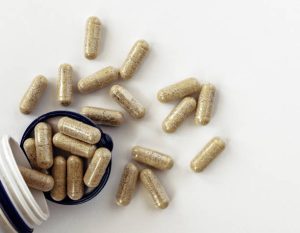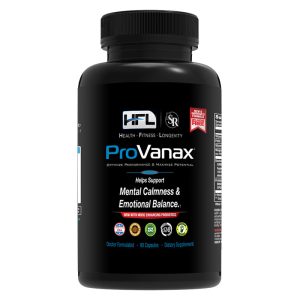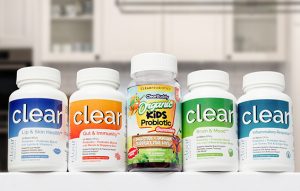Table of Contents
ToggleDigestive health plays a crucial role in maintaining overall well-being. It involves the breakdown and absorption of nutrients from food, which provide the body with energy and essential building blocks for growth and repair. Factors such as poor diet, stress, medications, and environmental toxins can disrupt the delicate balance of the digestive system, leading to various digestive issues like bloating, constipation, and diarrhea. To combat these issues, many people turn to organic digestive supplements as a natural and effective solution.
Function and Factors Affecting Digestive Health
The digestive system is an intricate network of organs and tissues that work together to break down food into smaller molecules that can be absorbed and utilized by the body. By prioritizing healthy eating habits, managing stress levels, and seeking medical attention when necessary, individuals can support the health of their digestive system and overall well-being and healthy microbiome.
The function of the Digestive System
The digestive system is a complex system that breaks down food into smaller molecules that can be absorbed and utilized by the body. The process begins in the mouth, where mechanical and chemical digestion occurs. The food then moves through the esophagus and into the stomach, where further digestion takes place. The small intestine is responsible for nutrient absorption, while the large intestine eliminates waste products. Peristalsis, hormones, and nerve signals all play a crucial role in regulating the digestive process.
Factors Affecting Digestive Health
Diet, stress, medication use, and underlying medical conditions can all impact digestive health. Consuming a diet rich in fiber, fruits, and vegetables can promote healthy digestion, while excessive consumption of processed foods, alcohol, and caffeine can disrupt the digestive process. Stress can also negatively impact digestion, as can the use of certain medications. Underlying medical conditions such as inflammatory bowel disease or celiac disease can also affect digestive health and should be addressed by a medical professional.
Maintaining Optimal Digestive Health
By prioritizing healthy eating habits, managing stress levels, and seeking medical attention when necessary, individuals can support the health of their digestive system and overall well-being. Consuming a balanced diet with a variety of nutrient-rich foods, staying hydrated, and exercising regularly can all promote healthy digestion. Stress management techniques such as meditation, deep breathing, and exercise can also help support digestive health. Seeking medical attention for persistent digestive symptoms can help identify and address any underlying medical conditions.
How organic supplements can support gut health?
Organic supplements play a vital role in supporting gut health by providing essential nutrients and beneficial bacteria.
The healthy gut microbiome, consisting of trillions of microorganisms, can be negatively affected by various factors like poor diet, stress, and antibiotic use. Organic supplements like probiotics and prebiotics, which are live microorganisms and non-digestible fibers respectively, can restore balance to the microbiome by increasing the number of beneficial bacteria in the gut and providing food for them to grow and thrive.
Choosing high-quality organic supplements free from harmful additives and contaminants is essential to ensure optimal gut health. Consulting a healthcare professional before incorporating new supplements into your diet is also important, particularly if you have a medical condition or are taking medication.
The Importance of Digestive Enzymes
Digestive enzymes are crucial for proper digestion and nutrient absorption.
These enzymes break down complex carbohydrates, proteins, and fats into simpler molecules like glucose, amino acids, and fatty acids, which the body can absorb and use for energy. The body produces these enzymes in various organs, including the mouth, stomach, pancreas, and small intestine.
The importance of digestive enzymes cannot be overstated as they aid digestion and nutrient absorption.
They relieve the strain on the pancreas, liver, and other organs involved in digestion, thus promoting overall digestive health. Amylase, protease, and lipase are some of the critical digestive enzymes, with specific functions.
Enzyme deficiency can result from genetics, aging, or certain health conditions.
Enzyme supplements are an effective solution for enzyme deficiency to help the body digest food and absorb nutrients more effectively. These supplements are especially useful for individuals with pancreatic insufficiency, cystic fibrosis, and inflammatory bowel disease.
The Impact of Stress on the Digestive Tract
Stress can significantly impact the digestive tract, triggering a cascade of physiological responses that affect digestive and immune function itself.
Cortisol, a stress hormone, can cause inflammation in the gut leading to digestive issues like diarrhea, constipation, and abdominal pain. Stress also alters eating habits, with many people turning to high-fat, high-sugar comfort foods that are difficult to digest and worsen symptoms. Chronic stress can cause more serious digestive disorders, such as irritable bowel syndrome (IBS) and ulcerative colitis. These conditions cause long-term damage to the digestive tract, leading to a reduced quality of life.
Fortunately, several steps can be taken to mitigate the effects of stress on digestion.
Mindfulness practices like meditation and yoga help reduce stress levels and promote relaxation, improving digestive function. A balanced diet that avoids triggers like caffeine, alcohol, and spicy foods can also help prevent digestive issues. In some cases, medication or therapy may be necessary to manage chronic stress and its impact on digestion.
Supplements That Improve Nutrient Absorption
To improve nutrient absorption in the digestive system, individuals can take supplements that support healthy digestion. Probiotics, digestive enzymes, and specific vitamins and minerals are common supplements that can enhance nutrient absorption.
Probiotics contain live microorganisms that balance the various gut flora and microbiome and promote healthy digestion. These supplements can be found in food sources like yogurt, kefir, and sauerkraut, or taken as a supplement.
Digestive enzyme supplements contain a blend of enzymes like amylase, protease, and lipase, which break down food into smaller molecules that the body can easily absorb.
Individuals with nutrient deficiencies can benefit from taking specific vitamins and minerals. For example, those with low vitamin B12 levels may benefit from a B12 supplement, while those with low iron levels may benefit from an iron supplement.
Common Digestive Issues
Common digestive issues refer to a group of disorders that affect the normal functioning of the digestive system. These conditions may affect any part of the digestive tract, from the esophagus to the rectum. Some of the most common digestive issues include acid reflux, irritable bowel syndrome (IBS), constipation, diarrhea, and hemorrhoids. These issues can cause discomfort, and pain, and affect a person’s quality of life.
Symptoms of Digestive Issues
Symptoms of digestive issues vary depending on the type of condition. Acid reflux, for example, causes a burning sensation in the chest and throat, whereas constipation may cause abdominal pain and bloating. Diarrhea can cause frequent bowel movements, loose stools, and dehydration. Hemorrhoids can lead to rectal pain and bleeding. IBS symptoms are more complex, ranging from abdominal pain, bloating, diarrhea or constipation, and changes in bowel habits.
Causes of Digestive Issues
Several factors can cause digestive issues. Poor dietary habits, such as a diet high in fats, sugar, and low in fiber, can lead to digestive problems. Food intolerances, such as lactose intolerance or gluten sensitivity, can also cause digestive issues. Stress, lack of exercise, and certain medications can also contribute to digestive problems. Other factors that can affect digestive health include age, gender, genetics, and underlying medical conditions.
Managing Digestive Issues
Seeking medical advice is essential to manage and treating digestive issues effectively. Treatment options depend on the type of digestive issue and its severity. Dietary changes, such as consuming more fiber-rich foods, may alleviate constipation. Medications, such as antacids or laxatives, can help manage acid reflux and constipation. For IBS, stress management techniques and certain medications may help manage symptoms. In more severe cases, surgery may be necessary. Leading a healthy lifestyle, such as exercising regularly, consuming a balanced diet, and managing stress, can also help maintain good digestive health.
Benefits of Organic Supplements for Digestive Health
Organic supplements are derived from natural sources and are free of harmful chemicals, making them a popular choice for individuals looking to enhance their overall health. These natural supplements offer numerous benefits for digestive health and are an ideal choice for those who want to take care of their bodies.
How Organic Supplements Help with Digestive Health
One of the main benefits of organic supplements is their ability to promote digestive health. These supplements contain high levels of fiber, essential vitamins, and minerals that are important for maintaining a healthy digestive system. Probiotics, which are often found in organic supplements, help to maintain a healthy balance of bacteria in the gut, while digestive enzymes can help to break down food more efficiently.
Types of Organic Supplements
There are many types of organic supplements available, each with its unique benefits for digestive health. Ginger supplements can help to soothe digestive discomfort and reduce inflammation in the gut, while peppermint supplements can alleviate symptoms of irritable bowel syndrome (IBS) and promote healthy digestion. Other popular organic supplements for digestive health include aloe vera, turmeric, and chamomile. By incorporating these supplements into their daily routines, individuals can take proactive steps toward supporting their digestive health and overall well-being.
Top Supplements for Better Digestive Health
Maintaining good digestive health is crucial for overall well-being. While a balanced diet, exercise, and adequate hydration play significant roles in promoting digestive health, taking organic supplements can offer additional benefits. Here are some of the top supplements for better digestive health:
Probiotics
- Explanation of probiotics
Probiotics are living microorganisms that are beneficial for the digestive system. These good bacteria can be found naturally in the gut or can be taken as a supplement. They work by improving the balance of healthy bacteria already in the gut, helping to maintain a healthy digestive system.
- Benefits of probiotics
Probiotics offer several benefits, including improving digestive function, boosting the immune system, and reducing the risk of certain health conditions such as irritable bowel syndrome and diarrhea. They can also help to enhance the absorption of nutrients, promote regular bowel movements, and improve mental health.
- Types of probiotics
There are many different types of probiotics available, including Lactobacillus acidophilus, Bifidobacterium bifidum, and Saccharomyces boulardii. Each type offers unique benefits, and it’s important to choose the right probiotic strain for your specific needs.
B. Digestive Enzymes
- Explanation of digestive enzymes
Digestive enzymes are natural substances that help to break down food in the digestive system. These enzymes are produced by the body and are also available in supplement form. They work by breaking down fats, proteins, and carbohydrates into smaller molecules that the body can absorb.
- Benefits of digestive enzymes
Taking digestive enzymes can help to improve digestive function, reduce inflammation, and alleviate symptoms such as bloating, gas, and constipation. They can also help to enhance nutrient absorption, support weight loss, and reduce the risk of certain health conditions.
- Types of digestive enzymes
There are several types of digestive enzymes, including amylase, protease, and lipase. Each enzyme works to break down a specific type of food molecule, and it’s important to choose the right enzyme supplement based on your dietary needs.
C. Fiber Supplements
- Explanation of fiber supplements
Fiber is an essential nutrient that plays a critical role in maintaining digestive health. It helps to regulate bowel movements, reduce inflammation, and lower cholesterol levels. While fiber can be found naturally in many foods, taking a fiber supplement can help to ensure that you’re getting enough of this important nutrient.
- Benefits of fiber supplements
Fiber supplements offer several benefits, including improving digestive function, promoting feelings of fullness, and reducing the risk of certain health conditions such as heart disease, diabetes, and colorectal cancer. They can also help to regulate blood sugar levels and promote weight loss.
- Types of fiber supplements
There are two types of fiber supplements: soluble and insoluble. Soluble fiber dissolves in water and helps to regulate cholesterol levels and blood sugar levels. Insoluble fiber does not dissolve in water and helps to promote regular bowel movements. It’s important to choose the right type of fiber supplement based on your specific needs.
The Connection Between the Immune System and Digestive Health
These probiotic supplements are derived from natural sources and contain no harmful chemicals, making them safe for consumption. Probiotics are a common organic supplement used to enhance nutrient absorption. Live bacteria in probiotics aid in breaking down food and improving nutrient absorption. Probiotics also boost the immune system and reduce inflammation, thereby promoting gut health.
Digestive enzymes are another organic supplement that aids in improving nutrient absorption.
The human body also produces enzymes to break down food and facilitate nutrient absorption. However, some people may not produce enough enzymes, resulting in poor digestion and nutrient absorption. Digestive enzyme supplements contain a blend of enzymes that help break down food and enhance nutrient absorption.
Ginger and turmeric have compounds that aid digestion and reduce gut inflammation. Aloe vera contains enzymes that help break down food and improve nutrient absorption. Aloe vera also promotes gut health by improving the health of the gut lining, which further enhances nutrient absorption.












